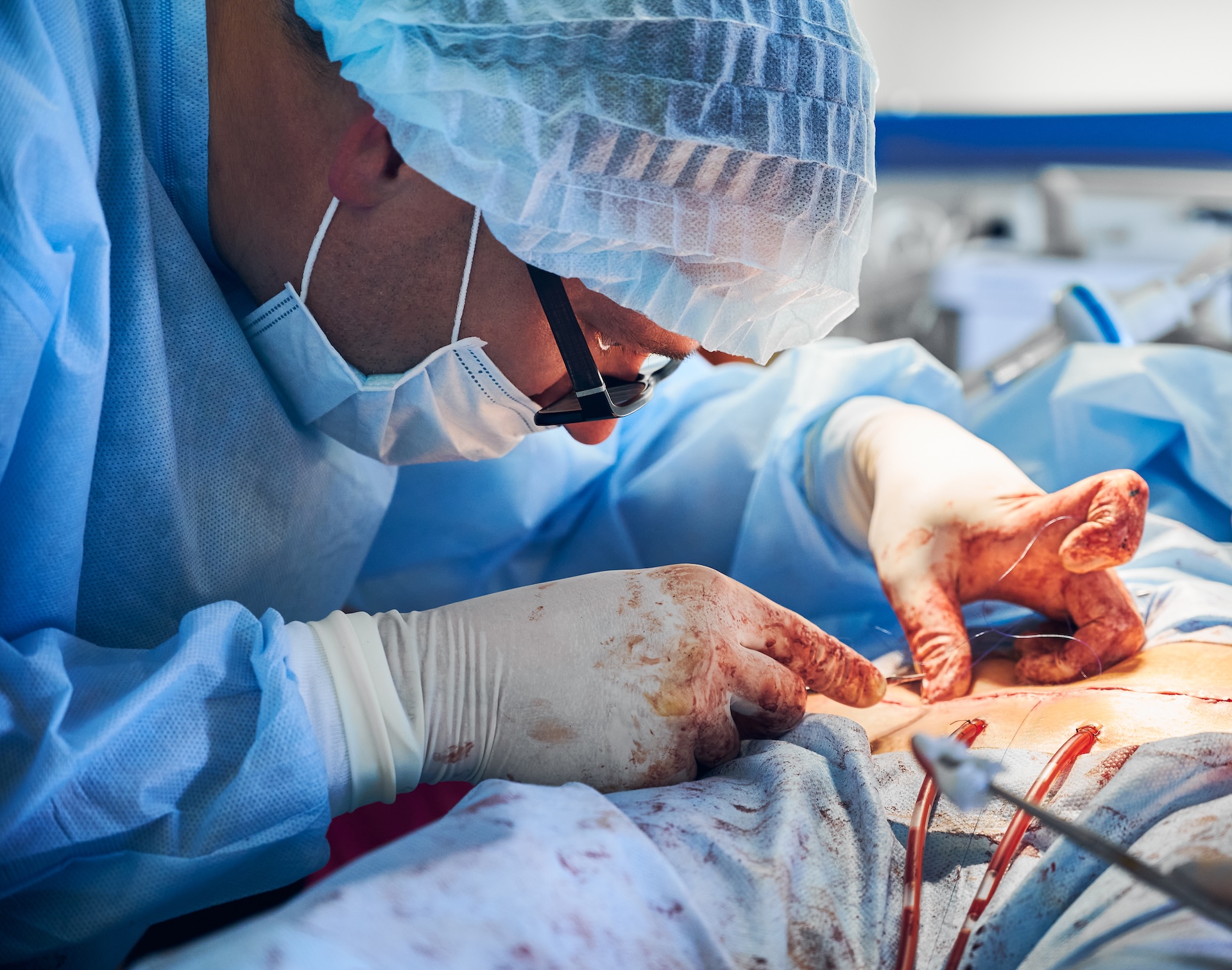Hip replacement, also known as total hip arthroplasty, is a surgical procedure performed to replace a damaged hip joint with a prosthesis.
This surgery is typically recommended when hip pain and stiffness significantly affect a patient’s quality of life, preventing them from performing daily activities. The most common reasons for needing this type of surgery include osteoarthritis, rheumatoid arthritis, severe injuries or fractures, and avascular necrosis.
If conservative treatments like physical therapy, medications, or injections have not provided sufficient relief, arthroplasty becomes an effective option to improve mobility and reduce pain. Understanding what will happen on the day of surgery is key to reducing anxiety and preparing mentally and emotionally for this important step. Below, we describe what you can expect on that day.
The day of surgery: step by step
1. Arrival at the hospital and registration
On the day of your operation, you will be asked to arrive early at the hospital, usually accompanied by a family member or friend who can support you throughout the process. Upon arrival, you will register at the admissions area to confirm details about your surgery. Remember to follow preoperative instructions, such as fasting from the night before and stopping certain medications.
2. Preoperative preparation
After registration, you will be taken to a preparation room and changed into a hospital gown. The medical staff will take your vital signs, such as blood pressure and heart rate, and insert an intravenous line to administer fluids and medications. They will also review your medical history to ensure everything is ready for the procedure. This is an excellent time to relax and mentally prepare for the next step.
3. Meeting with the anesthesiologist
Before the hip replacement surgery begins, the anesthesiologist will meet with you to discuss the type of anesthesia you will receive. This may be general anesthesia, which will put you completely asleep, or regional anesthesia, such as spinal anesthesia, which numbs the lower part of your body while you remain awake. The anesthesiologist will answer any questions or concerns and explain how your comfort will be managed during the surgery.
4. Transfer to the operating room
Once everything is ready, you will be transferred to the operating room on a stretcher. It’s natural to feel nervous at this point, but rest assured, you are in the hands of a highly trained team. They will take care of you throughout the process, and the operating room will be fully equipped for a safe surgery.
5. During surgery
The total hip arthroplasty procedure typically lasts between one and two hours. The surgeon will remove the damaged parts of the hip and replace them with a prosthesis, which may be made of metal, ceramic, or plastic. While the surgery is being performed, you will be under anesthesia and will not feel any pain.
6. Recovery room
After surgery, you will be taken to the recovery room, where you will be monitored as you wake up from anesthesia. At this stage, you may feel pain or discomfort in the hip, but you will be given painkillers to manage it effectively. The medical team will monitor your vital signs and ensure everything is stable before taking you to your room.
7. First steps after surgery
One of the most important parts of your recovery begins shortly after surgery. Physical therapists and nurses will help you get out of bed and walk with the assistance of a walker or crutches. This early movement is not just crucial, it’s empowering. It helps prevent complications such as blood clots and kickstarts your journey to regaining mobility in your hip.
8. Initial rehabilitation
In the days following surgery, the medical team will be there for you, guiding you through physical therapy exercises to strengthen your muscles and improve the range of motion in your hip. While it may be painful or uncomfortable at first, this rehabilitation is crucial for your long-term recovery. Your physical therapist will teach you the correct movements to avoid injury and maximize your progress.
9. Hospital discharge
Most patients stay in the hospital for one to three days after surgery, depending on their progress. Before you are discharged, you will receive clear instructions on how to care for the surgical wound, what medications to take, and how to continue rehabilitation exercises at home. You will also be advised to avoid falls or sudden movements that could compromise your new hip.
Mental and emotional preparation
Undergoing major surgery can be a stressful experience, but being mentally and emotionally prepared can make a big difference. Here are some tips to help you face the process with more calm:
- Get Informed: Understanding the details of the surgery and what will happen on the day of the operation will help reduce anxiety. Don’t hesitate to ask your doctor or hospital staff questions.
- Seek Emotional Support: Talking with friends and family can help you feel calmer and supported. It is also helpful to share your concerns with the medical team.
- Relaxation and Visualization: Practicing deep breathing techniques or positive visualization before surgery can effectively calm nerves.
- Maintain a Positive Attitude: Although recovery can be challenging, focusing on the long-term benefits, such as improved quality of life and reduced pain, will help you maintain an optimistic mindset.
In summary, the day of your total hip arthroplasty surgery will be full of well-planned steps to ensure your safety and comfort. The medical team will guide you through each stage from the moment you arrive at the hospital to when you begin your recovery. Staying informed and mentally prepared will help you face this crucial day with confidence and peace of mind.
A choice for medical excellence
At Blue Ribbon, we are a medical tourism network that has grown steadily over the years and continues to expand. Connected with top-level doctors and hospitals in Mexico, we aim to provide our clients access to specialized medical procedures at a much more affordable price than in the United States without compromising medical quality.
We offer a wide range of medical specialties, from orthopedic procedures, urology, and ophthalmology to plastic surgery and bariatric medicine. Additionally, we have coordinators dedicated to guiding and supporting you throughout the entire process, as our primary goal is to enhance the patient experience during these advanced medical procedures.
If you are interested in undergoing any of the medical procedures we offer or want to learn more about the Blue Ribbon experience, please contact us at 213-9953-029 or via email at contact@blueribbonmedicalnetwork.com. We are here to answer any questions you may have.






